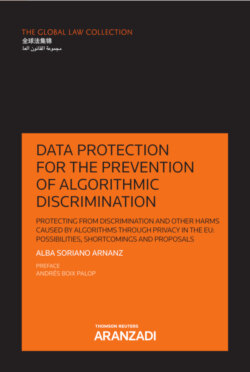Читать книгу Data protection for the prevention of algorithmic discrimination - Alba Soriano Arnanz - Страница 24
На сайте Литреса книга снята с продажи.
3.2.1.1. The use of algorithms in public aid and welfare programmes
ОглавлениеMany countries have chosen to automate their welfare programmes in order to allocate resources more efficiently and save money by preventing and detecting cases of fraud. Automating public aid and welfare programmes raises problems with regard to the prioritisation of economic efficiency over redistribution objectives in this particular area of public activity. An especially widespread use of algorithms for these purposes has taken place in child protection services seeing as several countries, such as Denmark, New Zealand, the United Kingdom and the United States, are using algorithms to detect and classify children at risk.140
Algorithms are also being used to determine public aid beneficiaries. The Municipal Housing and Land Company in the city of Madrid began using an algorithm to allocate public housing in 2019.141 All housing petitioners are divided into several demand groups, which, for example, include single parent families; people with disabilities; individuals under 35, and people in an extreme situation of social exclusion amongst others.142 Most of the groups into which petitioners are classified can be labelled as vulnerable or at risk of not being able to afford housing. There is an additional group labelled “general demand”, which encompasses petitioners that do not fall under any of the vulnerable groups. This initial classification is carried out by public servants and not by the algorithm. Within each group, subgroups can also be elaborated. These subgroups consider the number of minors, people with a disability and the income level of each household. Once the groups and subgroups have been defined, the algorithm randomly allocates available housing spaces within each group or, if it is the case, within each subgroup.
In Spain, the process of determining eligibility for a discount in the energy bill has also been automated. This public aid programme is known as the “energy social bond”. The use of this algorithm has become especially controversial since there have been several cases of individuals who complied with the requirements set by the regulation but were still denied the corresponding discount.143 Although a civil society organisation has requested access to the algorithm, said access has been denied both by the Spanish government and the Transparency Council, and the case is, at the time of writing, pending before the Spanish Central Administrative Court.144
